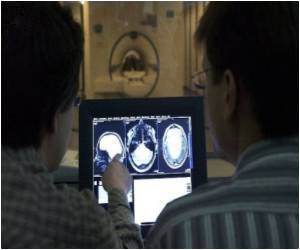
Chen said that ShRNAs are invaluable tools in the study of what genes do. They function like molecular erasers, asserting that they can design these 'erasers' against every gene in the human genome.
He said that these shRNAs can then be packaged into viruses and introduced into cancer cells, explaining that if a gene is required for glioblastoma growth and the shRNA erases the function of that gene, then the cancer cell will either stop growing or die.
Chen said that one surprising finding is that many genes required for glioblastoma growth are also required for dopamine receptor function. Dopamine is a small molecule that is released by nerve cells and binds to the dopamine receptor in surrounding nerve cells, enabling cell communication.
Following clues unveiled by their shRNA study, Chen and his team tested the effects of dopamine antagonists against glioblastoma and found that these drugs exert significant anti-tumor effects both in cultured cells and mouse models.
These effects are synergistic when combined with other anti-glioblastoma drugs in terms of halting tumor growth.
Advertisement
Source-ANI














